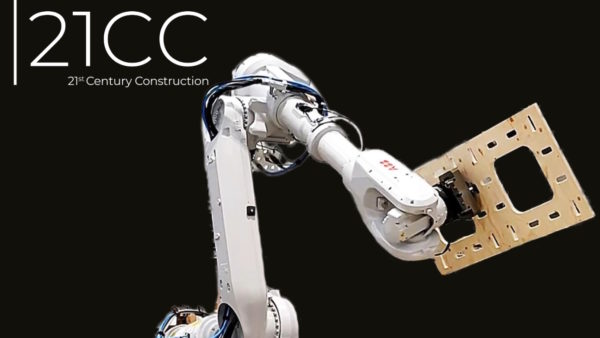Engineers, digital specialists, contractors and consultants packed the Institution of Civil Engineers in London last Thursday to listen, learn, and debate what part they need to be playing in digital transformation of the industry.
In the plenary sessions before lunch, leaders from Atkins, Microsoft, Digital Catapult and the ICE president, Tim Broyd, provided their thoughts. The overarching message was one of do or die – we are in the midst of the fourth industrial revolution, so get with the programme. Indeed, an audience poll agreed with the assessment that the revolution was already under way.
So what tips did they have for driving digital transformation and surviving the process?
1. Engineers need to think totally differently.
To embrace digital tools to make the industry more competitive, said Alex Janzen, executive officer to Atkins CEO, UK and Europe. He said that engineering had always harnessed disruptions, the only difference here was the pace.
As Tim Broyd, ICE president reminded the audience, it’s only 22 years since the worldwide web was invented and 10 years since the iPhone. He paraphrased Stirling Moss: “If you think everything is under control, then you’re not going fast enough.”
2. Learn the hard lessons from the music industry.
Jeremy Silver, of the government tech support network, digital Catapult, said that the music industry had made the mistake initially of fighting new technology – closing down the first music file sharing service Napster, only eventually to have to embrace it with iTunes and then Spotify. “You can’t ignore change,” he said.
The music industry lost control of the distribution of music and the relationship with the customer in 1999 it was worth $23bn worldwide, by 2006 two thirds of the value had been wiped and it is only now coming back into growth. Meanwhile Apple’s market cap is worth $805bn.
The message from this, said Silver, was that companies should embrace change, rather than think “it’s not relevant to us”. “I think these days there is a more positive attitude to bringing new technology into business. The single biggest message is that it is more about collaboration. We have enough history now to see how change will happen.”
3. Diversity of people is more important than ever
Richard Ellis, office division lead UK, Microsoft, told the story of the demise of Nokia which in 2007 was the most powerful phone company in the world. “Then iPhone launched. Nokia had zero diversity in their boardroom and it cost them their company.”
“People and culture is the heart of digitisation.”
4. We need to unlock mobility
Ellis said that alongside diversity, culture was essential but it wasn’t just ‘old companies’ that got it wrong. “Search engine Yahoo banned homeworking. And I still come across companies asking employees to login. Millennials don’t want to work for companies where you have to work at your desk five days a week.
“We need to unlock mobility and with the technology available there is no reason we can’t do that. The trick is to harness the technology to allow individuals to come together to work collaboratively and in doing so harness creativity. The power to unlock the power of the group is key.”
Ellis said that Microsoft was currently designing some of its new offices with no desk spaces – just places where people came together to meet.
Some companies in Scandinavia were also finding that if their employees worked shorter hours from 10 until 4 they were more productive.
5. Being unplugged is as essential as being connected.
Asked by an audience member if there were dangers in being “overconnected” all speakers said it was essential that workers and their bosses became more disciplined in the way they worked. “I’d question how healthy it is for people to be waking up and checking their email at six in the morning,” said Atkins’ Alex Janzen. “Leaders need to have the moral courage to say we don’t expect you to be working 24 hours a day.”
6. Be careful about separating the new tech experts from the operational side of the business.
Silver said it was becoming common for companies to sit those driving digitisation into “corporate centres” that weren’t connected to the rest of the business. “What you need to do is create pilot projects that are connected into the operational side – and focusing on a particular project may be a good way of doing that.”
7. Don’t panic robots won’t take over the professions
Engineers shouldn’t be worried about machines taking their jobs, sad Janzen. He said there may be some pain in the transition, but forecast that artificial intelligence would create opportunities for engineers to “do what they do best” thinking creatively, leaving the routine tasks to be carried out by machines. “Technological progress has never failed to generate employment.”
Jeremy Silver agreed: “AI is not about to destroy jobs, the technology is something of a strength in the UK, creating thousands of new roles.”
8. It’s easier for start-ups than existing companies
All the speakers agreed that it was easier for new companies to come into a market and do things differently, rather than have to “change the fan belt whilst the engine was still running”, as Silver put it.
He said it was essential for companies to also make a safe space for failure. Another tip all echoed was that going along the journey of digitisation could not be justified in arguments based on ROI – it was often about strategy.
Search engine Yahoo banned homeworking. And I still come across companies asking employees to login. Millennials don’t want to work for companies where you have to work at your desk five days a week.– Richard Ellis, Microsoft















